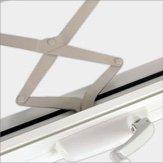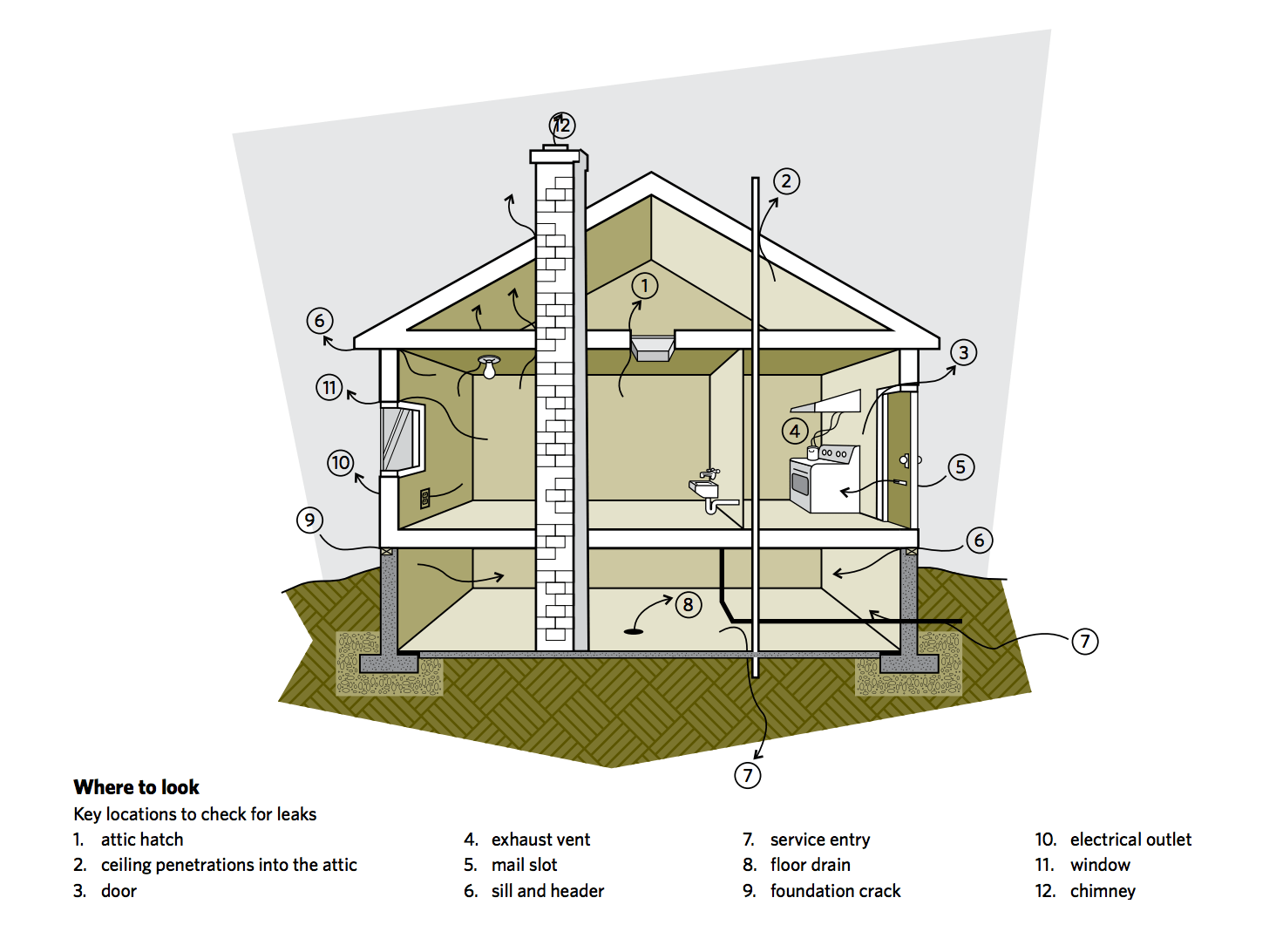It seems like no conversation about energy efficiency goes on without some mention of windows and doors. And vice versa. It’s true, windows can contribute significantly to heat loss in your home if they are old or aren’t installed properly.
What’s not true, is that windows are the only source of energy loss in a house. Just like it isn’t true that windows are the only solution to your home’s efficiency problems.
In reality, there are other, smaller factors in your home, that together outweigh the energy loss impact of windows. And they are often much cheaper to address than replacing windows in the whole house.

How to make your home more energy efficient?
In simple terms, making your home energy efficient means making it less reliant on power to run your appliances and heat the air. Improving the energy efficiency may mean either optimizing the performance of the existing energy components in your home or replacing them with better-performing ones.
And exactly where to apply which principle is often the challenge for most homeowners.
Whether it’s something as small as buying new duct tape or as big as a renovation project, there are ways to figure out whether the improvements you make are having an impact. All energy-efficient products you buy or install should have an immediate improvement in the efficiency in your home. Consider also the return on investment: how long will it take for the product to pay for itself? If the timeline is too long, or the cost of the project too expensive to reap immediate value, it doesn’t mean the project isn’t worth it in the grand scheme. It just means there are probably other smaller things that you can do first to offset heat loss in your home.
And if you consider this approach, the savings earned from smaller fixes can go a long way toward those bigger efficiency projects like purchasing new appliances or getting a window or structural work done.
Check out this guide on How To Make Your Home More Energy Efficient from Natural Resources Canada
How ENERGY STAR products improve energy efficiency in your home
You may or may not be aware, but you are already surrounded by ENERGY STAR rated products in your everyday life. Whether it’s your flat screen TV, efficient laundry washer, and dryers, or even the insulation in your wall, pretty much anything that is concerned with consuming or saving energy in your home can be replaced with an ENERGY STAR rated product.
ENERGY STAR is an international organisation that tests and rates products based on how they perform in regard to energy efficiency. When it comes to windows in Canada, the organisation does the same thing, certifying all window models recognised as energy-efficient. As of January 2020, homeowners no longer have to consider a Climate zone when shopping for windows that are ENERGY STAR® certified in a particular area. A product in Canada is either ENERGY STAR® certified or not, with a single standard applied nationwide.
But keep in mind that if you are looking to purchase new energy-efficient windows, you should only consider models with a minimum ER (energy rating) of 34 to make sure that these windows meet the Canadian government fenestration standards.

If you don’t already have ENERGY STAR rated products in your home, that doesn’t mean you have to rush and replace everything, but it is an absolute must to consider when you are doing any renovation work on your house.
Here are some things you may want to consider making more efficient at a fraction of the price of getting new windows.
Improve the airflow in your home
While this problem also relates to windows, we’re talking more specifically about ducts here. As warm air rises throughout your home as much as 20% can be lost through poorly sealed ducts. Energy loss through the HVAC system also amounts to roughly 40% of energy lost from the entire home. Sealing your ducts, replacing the furnace filter, and ensuring that your attic has sufficient insulation can help circulate the air in your home more efficiently and with minimal loss. It is also a project that costs significantly less than a renovation undertaking.
Trust a programmable thermostat
Programmable thermostats don’t cost much more than basic ones nowadays. But the benefits are huge. Programming when your heating or air-conditioning turns on can help you avoid consuming energy during peak hours, ensure that the temperature is right when you get home or wake up in the morning, and waste as little energy as possible while you’re not home.
Don’t overlook the power of landscaping
Whether you’re making your home more energy efficient for environmental reasons or purely to save a couple of dollars, don’t underestimate the power a few plants around your property can have on improving the efficiency of your home.
In the winter time, strategic placement of trees and plants can block the home from windchill and act as an insulating barrier. In the summer time, trees can provide shade and keep your home from overheating in direct sunlight. Properly placed plants can reduce the cost of air-conditioning up to 50% during the hot season.
Play your part in the efficiency of your home
Homeowners often think of reducing energy bills through renovations or upgrades in their house, but completely miss the point on energy efficient practices. Simple things like turning the lights off, doing only full loads of laundry, or reducing shower time can go a long way toward decreasing the energy consumption of your home and saving you money. Not to mention the personal effect of feeling like you are doing the right thing by being resourceful with your utilities. Find out more things you can do to have less impact on your home’s energy use.
Window replacement is a great way to improve the energy efficiency of your home. But it isn’t the only way, nor does it yield the best value in the short-term. Consider other problem areas in your home where energy is lost and think of your home as a system where different components work together to improve efficiency. And don’t forget that your own energy use is very much a contributor to that system – so try to make a positive contribution.
Check out these window replacement articles:
Find Out The Cost of Replacement Windows
How To Compare Replacement Windows
One Thing You MUST Know Before Scheduling A Window Replacement Quote

